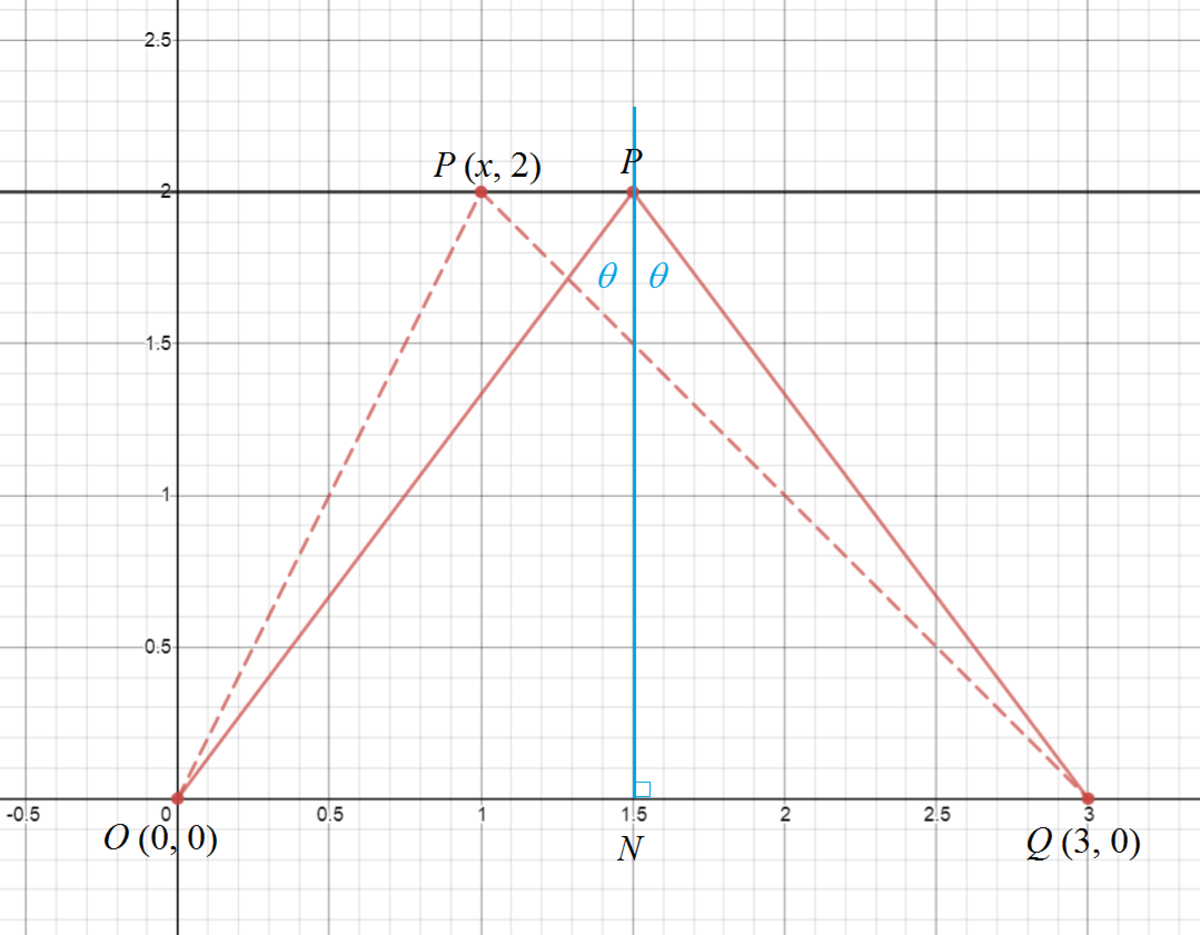An algebra problem by Aly Ahmed
x 2 + 4 + x 2 − 6 x + 1 3 Minimize the expression above for real x .
The answer is 5.
This section requires Javascript.
You are seeing this because something didn't load right. We suggest you, (a) try
refreshing the page, (b) enabling javascript if it is disabled on your browser and,
finally, (c)
loading the
non-javascript version of this page
. We're sorry about the hassle.
2 solutions

Note that x 2 + 4 + x 2 − 6 x + 1 3 = ( x − 0 ) 2 + ( 2 − 0 ) 2 + ( x − 3 ) 2 + ( 2 − 0 ) 2 is equivalent to the sum of lengths of O P and P Q , where O ( 0 , 0 ) , Q ( 3 , 0 ) , and P ( x , 2 ) is a point on y = 2 . The shortest distance to get from O to Q via P is the same as that traveled by light from O to Q reflected at P , as if y = 2 is a mirror. Then the angles of incident and reflection are the same or ∠ O P N = ∠ Q P N , where P N is normal to the mirror y = 2 . Therefore min ( x 2 + 4 + x 2 − 6 x + 1 3 ) = 2 O N 2 + P N 2 = 2 × 1 . 5 2 + 2 2 = 5 .
The question is actually to find the minimum value of the sum of distances of two line segments joining points ( 0 , x − 3 ) , ( 2 , 0 ) and points ( 2 , 0 ) , ( 4 , − x ) . Obviously, the minimum value of this is the straight line distance between points ( 0 , x − 3 ) , ( 4 , − x ) when the points ( 0 , x − 3 ) , ( 2 , 0 ) , ( 4 , − x ) are collinear. That is,
x − 3 = − x ⟹ x = 1 . 5 .
Then the minimum distance will be
( 0 − 4 ) 2 + ( − 1 . 5 − 1 . 5 ) 2 = 5 .